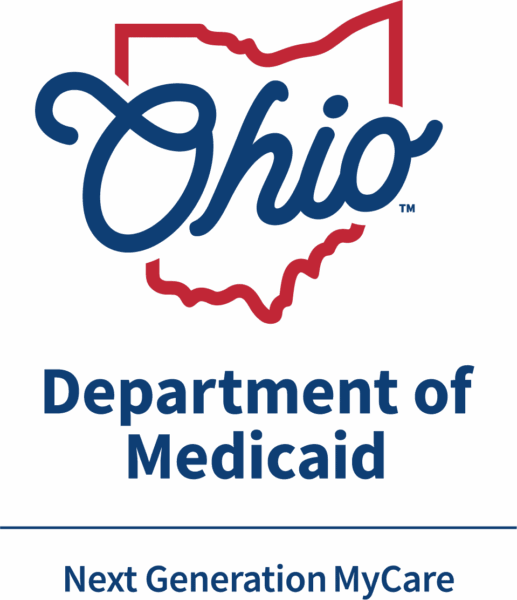What Is Self-Directed Care?
Self-directed care, also called consumer-directed care, is a Medicaid-funded option that allows you or your loved one to have more control over long-term care services. Instead of receiving care from an agency-appointed aide, you can choose your own caregiver, often a family member or friend. You also get more say in when and how care is provided.
The goal is simple: give people more independence, dignity, and flexibility in their daily lives.
In a traditional care model, a state-approved agency sends someone to your home based on their availability. You may not know the person, and schedules can change frequently. With self-directed care, you are in charge. You choose someone you trust, and they get paid through Medicaid for the care they provide.

State-Directed Care vs. Self-Directed Care
You might be wondering how self-directed care differs from the care your state typically provides.
State-directed care usually means:
- The state (or a managed care organization) assigns a home care agency. For example, your Medicaid plan may automatically contract with a large local agency that sends whichever aide is available.
- The agency decides which caregiver comes to your home. You might be visited by a different aide every few days, or your preferred aide may be reassigned with little notice.
- Your ability to choose the caregiver, or set the schedule, is limited. You may have to accept appointment windows like 9am to 1pm, even if that doesn’t work for your routine.
Self-directed care means:
- You pick your own caregiver, often a trusted family member or friend. For instance, many people choose their adult daughter, who already helps them every day, to be their paid caregiver.
- You decide on a schedule that fits your lifestyle. You can agree with your caregiver to help in the mornings, evenings, or weekends, whatever works for both of you.
- You help shape the care plan alongside professionals. You discuss what tasks are most important to you and have a say in how your care is delivered, instead of being told what services will be provided and when.
If you’ve ever had to cancel plans or miss work to accommodate a stranger’s schedule, self-directed care can be life-changing. Many families come to us after trying state-directed care and realizing it doesn’t offer the personalized support they need.
Who Is Eligible for Self-Directed Care?
Eligibility varies by state, but there are some general guidelines. To qualify, the person receiving care must:
- Be eligible for Medicaid
- Require help with daily living activities (like bathing, dressing, or eating)
- Be living at home (not in a nursing facility)
- Be capable of directing their care or have a representative who can help
At FreedomCare, we can walk you through the requirements specific to your state. We know how complicated it can feel to apply for these programs, and we’re here to help you every step of the way.
What Services Can Be Self-Directed?
Most of the services you’d expect from a traditional home health aide can be self-directed. These might include:
- Help with personal care (bathing, grooming, dressing)
- Assistance with mobility and transfers
- Meal preparation and feeding
- Light housekeeping and laundry
- Transportation to appointments
- Companionship and emotional support
Some states even allow participants to purchase specific goods or services related to their care. We can help you understand what’s covered where you live.
Can You Hire a Family Member?
Yes, and this is one of the most powerful benefits of self-directed care.
Many people prefer to be cared for by someone they already trust: a daughter, son, spouse, grandchild, or even a close friend. Self-directed care makes that possible. In most cases, you can hire:
- An adult child
- A sibling
- A niece or nephew
- A grandchild
- In some states, even a spouse
This not only provides comfort for the person receiving care, but it can also relieve financial stress for the caregiver. We’ve seen how this program can transform a family’s life by allowing one member to step into the caregiving role full-time without sacrificing income.
At FreedomCare, we’ve helped thousands of caregivers, just like you, get paid to care for the people they love.
How Does It Work Day-to-Day?
Self-directed care is designed to give you freedom, not more stress. Here’s what you can expect:
- You or your loved one creates a care plan with the help of a case manager or support planner
- You choose your caregiver, and they are enrolled through a fiscal intermediary like FreedomCare
- Your caregiver gets paid through Medicaid for their services
- You manage the schedule and daily care with flexibility
FreedomCare acts as the employer of record, handling payroll, taxes, and compliance so you can focus on what matters: caring for your loved one.
We also offer a user-friendly app that makes tracking time and managing care easier. Our dedicated team is available whenever you need help. You’re never alone in this process.
Pros and Cons of Self-Directed Care
No program is perfect, and it’s important to weigh the pros and cons.
Benefits:
- You choose someone you trust
- Consistent, familiar care
- Flexibility in scheduling
- Improved satisfaction and comfort
- A caregiver you know is less likely to miss appointments
Challenges:
- You (or a representative) must take an active role in managing care
- Some states have limitations on who you can hire
- Paperwork and scheduling still require attention, though we help with that every step of the way
Many families find that the benefits far outweigh the challenges, especially when supported by a team like FreedomCare, which is familiar with the intricacies of each state’s process.
How to Apply for the Medicaid Self-Directed Care Program
Getting started doesn’t have to be difficult. Here are the basic steps:
- Check your Medicaid eligibility
- Reach out to your local Medicaid office or managed care plan
- Request an assessment to determine care needs
- Ask about self-directed care options
- Choose a fiscal intermediary like FreedomCare to help with enrollment and payments
Pick your caregiver and create a care plan
Many people don’t realize this option exists. If you’re feeling lost in the system or unsure who to trust, just know that you’re not alone. FreedomCare can answer your questions, help you through the application, and support you throughout the journey.
FreedomCare’s Role in Self-Directed Care
At FreedomCare, we exist for one reason: to support family caregivers.
We are an approved Fiscal Intermediary (FI) in multiple states, which means we’re authorized to manage payroll and compliance for your chosen caregiver. But more than that, we’re your partner.
- We walk you through the Medicaid application process
- We help your chosen caregiver get enrolled and trained
- We handle the paperwork and make sure your caregiver gets paid on time
- We offer support via phone, app, and in-person visits if needed
Thousands of families have come to us feeling confused or overwhelmed, and we’ve helped them find clarity, confidence, and support.
Real-Life Situations Where Self-Directed Care Makes a Difference
- A daughter caring for her aging mother who refuses help from strangers
- A son managing care for his father after a stroke while balancing his own work life
- A grandchild moving back home to care for a grandparent with dementia
We’ve seen all of these situations, and we’ve helped each family create a plan that gave them peace of mind. If you’re in a situation like this, self-directed care may be the answer you’ve been looking for.
Final Thoughts
Caring for a loved one is never easy, but it doesn’t have to be filled with frustration or red tape. The Medicaid self-directed care program puts the power back in your hands. It allows you to choose someone you trust and to make care decisions that work for your family.
And you don’t have to figure it out alone.
If you’re ready to take control of your care journey or want to get paid to care for a family member, FreedomCare is here to help.
Reach out to us today and find out how we can support you, because no one should have to navigate caregiving alone.






